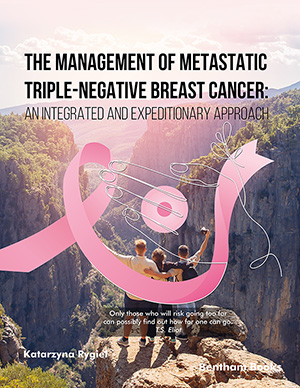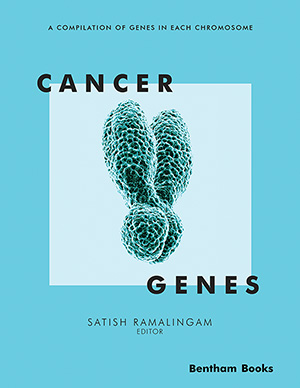Abstract
Platinum-based chemotherapeutics are the mainstay of treatment of a range of tumors achieving high response rates but limited in the course of disease by appearance of drug resistance. Tumor cells respond with reduced uptake and increased intracellular inactivation of the drugs, as well as increased DNA repair and general resistance to chemotherapyinduced cell death. Cisplatin is known to induce expression of cyclophilins, a group of proteins that have peptidyl-prolyl cis-trans isomerase (PPIase) and molecular chaperone activities, as stress response. Cyclophilin A (CypA) and other members of this family are inhibited by cyclosporin A (CsA) which sensitized diverse drug-resistant tumor cell lines in vitro to cisplatin. This effect of CsA was attributed to metabolic changes, inhibition of DNA repair, enhancement of apoptosis, altered intracellular signal transduction or increased production of reactive oxygen species (ROS), although no definitive explanation was provided so far. Several clinical trials employing cisplatin/carboplatin in combination with CsA yielded unsatisfactory results. Since viral replication was found to be dependent on cyclophilins of the host cells, effective new inhibitors, different from CsA or with low or absent immunosuppressive activity, are in development or clinical trials. Sanglifehrins are more potent than CsA and proved to increase toxicity of cisplatin against hepatocellular cancer cells in vitro. These novel cyclophilin inhibitors may offer new opportunities to achieve reversal of resistance to platinumbased drugs in refractory patients. Responsive cancer patients may be enriched in clinical trials by an identification of the downstream targets of Cyps responsible for chemoresistance.
Keywords: CD147, chemotherapy, cisplatin, cyclophilin, cyclosporin, drug resistance, ovarian cancer, reactive oxygen species, sanglifehrin.
Current Cancer Drug Targets
Title:Cyclophilin A as a Target of Cisplatin Chemosensitizers
Volume: 14 Issue: 1
Author(s): Gerhard Hamilton
Affiliation:
Keywords: CD147, chemotherapy, cisplatin, cyclophilin, cyclosporin, drug resistance, ovarian cancer, reactive oxygen species, sanglifehrin.
Abstract: Platinum-based chemotherapeutics are the mainstay of treatment of a range of tumors achieving high response rates but limited in the course of disease by appearance of drug resistance. Tumor cells respond with reduced uptake and increased intracellular inactivation of the drugs, as well as increased DNA repair and general resistance to chemotherapyinduced cell death. Cisplatin is known to induce expression of cyclophilins, a group of proteins that have peptidyl-prolyl cis-trans isomerase (PPIase) and molecular chaperone activities, as stress response. Cyclophilin A (CypA) and other members of this family are inhibited by cyclosporin A (CsA) which sensitized diverse drug-resistant tumor cell lines in vitro to cisplatin. This effect of CsA was attributed to metabolic changes, inhibition of DNA repair, enhancement of apoptosis, altered intracellular signal transduction or increased production of reactive oxygen species (ROS), although no definitive explanation was provided so far. Several clinical trials employing cisplatin/carboplatin in combination with CsA yielded unsatisfactory results. Since viral replication was found to be dependent on cyclophilins of the host cells, effective new inhibitors, different from CsA or with low or absent immunosuppressive activity, are in development or clinical trials. Sanglifehrins are more potent than CsA and proved to increase toxicity of cisplatin against hepatocellular cancer cells in vitro. These novel cyclophilin inhibitors may offer new opportunities to achieve reversal of resistance to platinumbased drugs in refractory patients. Responsive cancer patients may be enriched in clinical trials by an identification of the downstream targets of Cyps responsible for chemoresistance.
Export Options
About this article
Cite this article as:
Hamilton Gerhard, Cyclophilin A as a Target of Cisplatin Chemosensitizers, Current Cancer Drug Targets 2014; 14 (1) . https://dx.doi.org/10.2174/15680096113136660109
| DOI https://dx.doi.org/10.2174/15680096113136660109 |
Print ISSN 1568-0096 |
| Publisher Name Bentham Science Publisher |
Online ISSN 1873-5576 |
Call for Papers in Thematic Issues
Advances in Cancer Biomarkers and Potential Drug Targets: From Diagnosis to Therapy
Cancer biomarkers play a crucial role in the diagnosis, prognosis, and treatment of cancer. They provide valuable information for cancer detection, risk assessment, treatment selection, and monitoring response to therapy. With advancements in molecular biology and high-throughput technologies, there has been an increasing interest in identifying and characterizing cancer biomarkers ...read more
Novel Therapeutic Approaches to Target Drug Resistant Tumors
With the development of disciplines such as chemical biology and molecular biology, the genes or proteins closely related to tumor occurrence and development have gradually become clear. Targeted therapies targeting these genes or proteins provide more effective methods for tumor treatment. Tumor targeted drugs generally only act on specific targets ...read more
ROLE OF IMMUNE AND GENOTOXIC RESPONSE BIOMARKERS IN TUMOR MICROENVIRONMENT IN CANCER DIAGNOSIS AND TREATMENT
Biological biomarkers have been used in medical research as an indicator of a normal or abnormal process inside the body, or of a disease. Nowadays, various researchers are in process to explore and investigate the biological markers for the early assessment of cancer. DNA Damage response (DDR) pathways and immune ...read more
Targeting the battlefield between host and tumor: basic research and clinical practice on reshaping tumor immune microenvironment
Immune system protects host against malignant tumors through effector cells and molecules. Cancer development and its response to therapy are regulated by inflammation, which either promotes or suppresses cancer progression. Chronic inflammation facilitates cancer progression and treatment resistance, whereas induction of acute inflammatory reactions often lead to anti-cancer immune responses. ...read more
 94
94
- Author Guidelines
- Graphical Abstracts
- Fabricating and Stating False Information
- Research Misconduct
- Post Publication Discussions and Corrections
- Publishing Ethics and Rectitude
- Increase Visibility of Your Article
- Archiving Policies
- Peer Review Workflow
- Order Your Article Before Print
- Promote Your Article
- Manuscript Transfer Facility
- Editorial Policies
- Allegations from Whistleblowers
Related Articles
-
Target Based Virtual Screening of New Leads Inhibitor against Bacterial Cell Division Protein FtsZ for the Discovery of Antibacterial Agents
Medicinal Chemistry Recent Advances In Developing Novel Anti-Cancer Drugs Targeting Tumor Hypoxic and Acidic Microenvironments
Recent Patents on Anti-Cancer Drug Discovery Transition Metal Based Anticancer Drugs
Current Topics in Medicinal Chemistry Toxicological Profile of Therapeutic Nanodelivery Systems
Current Drug Metabolism Combinatorial Nanoparticles for Cancer Diagnosis and Therapy
Current Medicinal Chemistry Cancer Therapeutics-Related Cardiovascular Complications. Mechanisms, Diagnosis and Treatment
Current Pharmaceutical Design Critical Roles of EGFR Family Members in Breast Cancer and Breast Cancer Stem Cells: Targets for Therapy
Current Pharmaceutical Design Gene Therapy Using IL-12 Family Members in Infection, Auto-Immunity, and Cancer
Current Gene Therapy Cancer Kinases and its Novel Inhibitors: Past, Present and Future Challenges
Current Drug Targets A Comparative Study of Glucose and Fructose in the Development of Sarcoma 180 in Mice
Letters in Organic Chemistry Formation of Five- and Six-Membered α,β-Unsaturated Lactones through Ring- Closing Metathesis of Functionalized Acrylates. Applications to Synthesis of Natural Products
Current Organic Chemistry Liposomes as Versatile Platform for Cancer Theranostics: Therapy, Bio-imaging, and Toxicological Aspects
Current Pharmaceutical Design MicroRNA-21: From Cancer to Cardiovascular Disease
Current Drug Targets Cancer Invasion and Metastasis: Discovering New Targets For Diagnosis and Therapeutics
Current Signal Transduction Therapy miR-629-3p Level Significantly Predicts Prognosis in Glioblastoma Patients Treated with Temozolomide Chemotherapy
Current Signal Transduction Therapy Review of Noscapine and its Analogues as Potential Anti-Cancer Drugs
Mini-Reviews in Organic Chemistry Autologous Mesenchymal Stem Cell Therapy in Progressive Multiple Sclerosis: An Open Label Study
Current Stem Cell Research & Therapy Role of the Hypoxic Microenvironment in the Antitumor Activity of Tyrosine Kinase Inhibitors
Current Medicinal Chemistry The use of Azoles Containing Natural Products in Cancer Prevention and Treatment: An Overview
Anti-Cancer Agents in Medicinal Chemistry Targeting Pattern Recognition Receptors (PRRs) in Nano- Adjuvants: Current Perspectives
Current Bionanotechnology (Discontinued)


























